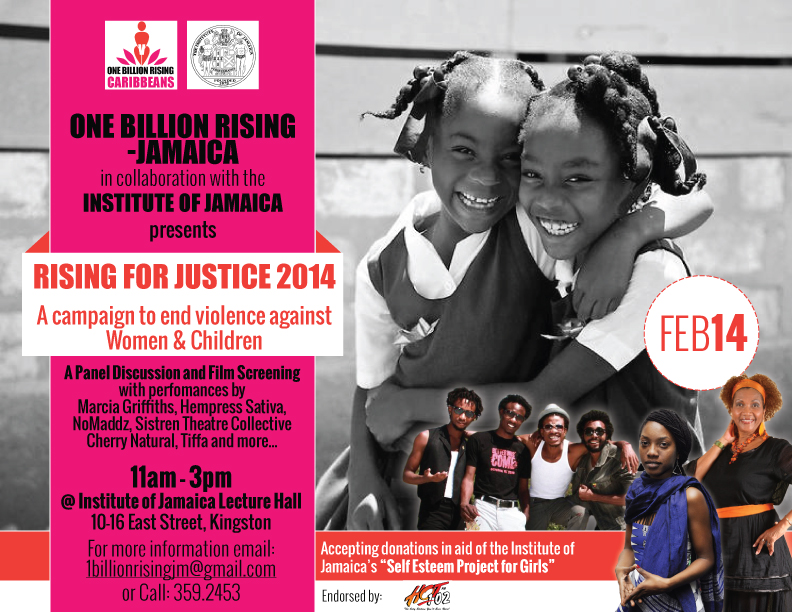Read the interview and learn more about Empress-Jamaica HERE
One billion women rising…transmits deep and resonant waves throughout my entire body. Now more than ever, the Divine Feminine is awakening across the planet. Why? It is from Her that one is conceived, carried and [re]birthed. She represents the epitome of the cycle of Life. As with the masculine, without Her as we’ve come to know her, civilization ends.
There are many women who have gone before me, paving the way so that I may be here today, fully self-expressed. A great part of my karmic duty as a human being is to offer wherever I can, to contribute to collective consciousness rising.
I am blessed to meet extraordinary women ALL OF THE TIME also following along their karmic path.
In honor of One Billion Women Rising, it is a privilege to interview two kindred souls; Karen Ayee and Bex Tyrer.
 UE: In fifty words or less, please share with our readers who you are being. What lights you up and gets you out of bed each morning?
UE: In fifty words or less, please share with our readers who you are being. What lights you up and gets you out of bed each morning?
UE: Karen, how did you get involved with One Billion Women Rising?
UE: I LOVE what you’re doing to build the One Billion Women (OBW) Rising in Jamaica in particular, and the Caribbean in general. Your recent video included here was off the charts! In such a hyper masculine, paradoxical and contradictory society like ours, I was especially encouraged to see our men involved in this video. Please share with the readers some of their views expressed. Ultimately, what is their vision for the treatment of women in Jamaica?
UE: Music and dance go together, like ackee and saltfish. Being actively involved in the reggae scene as a promoter (?) and advocate, how do you feel that music in Jamaica can play an integral role in the healing that we so desperately need to take place on our impressionable island that for all intents and purposes, seems to be going through a re-birth process? A lot of the darkness that we’re witnessing is to me, a part of this process; i.e., we are in our shadow phase.
 UE: In fifty words or less, please share with our readers who you are being. What lights you up and gets you out of bed each morning?
UE: In fifty words or less, please share with our readers who you are being. What lights you up and gets you out of bed each morning?
UE: Bex, I’m so happy that we re-connected literally as I touched down in Bali. Recalling our conversation, I feel that as Western women especially, we take for granted what it means to be in touch with our bodies. I was fascinated by the bits you shared about your recent experience of teaching yoga in Palestine. What brought you there in the first place?
The separation wall built around Bethlehem where I lived is now 850 km long. It is a perpetual ghetto. It disturbed me that could cross but my Palestinian friends and colleagues couldn’t. After the second intifada in 2004, they weren’t allowed to drive 30 min to the next village. Any and everything becomes acceptable in a state of war. For example, housing demolitions happened with barely 24 hours notice. Fathers were arrested and children were made prisoners. Why? Because they threw stones! That’s any child’s natural way of acting out. This sordid rite of passage passed from one generation to the next. Yet again, we witnessed women as the real victims of war. Suddenly they were forced to become the breadwinners while their men were imprisoned, yet as women, they couldn’t leave the house to go and find work.
UE: Also, please share with us how the Palestinian women received you as a Western woman teaching yoga to them. What tips would you offer to those who may wish to give back in communities and cultures that are very different to their own on so many levels?
UE: The whole notion of OBW is built on the premise of 1 billion women dancing around the world. I’m a firm advocate of movement as an effective tool for healing and transformation. I know that you both share my sentiment on this. Bex, being a yoga teacher as well a dance goddess – I loved your capoeira the other day at Sunday Dance J — how has movement aided in your own healing and why do you feel prompted to share it with others?
Karen and Bex, are there any final words that you’d like to share with our readers?
UE: Karen and Bex, the stories you both share serve to remind me and the world that when one of us suffers, we all suffer. The plight of a woman in Jamaica is the plight of woman in Palestine and elsewhere. While the details of their circumstances may seem different, the impact on children, women, men, society and the collective whole is essentially the same. In other words, we are more alike than we are different. It is my hope that our readers will recognize this; i.e., that this is the rise of collective consciousness in the name of One LoVe.
Thank you both for taking your time to share time and space with UniversalEmpress.
Namaste!
